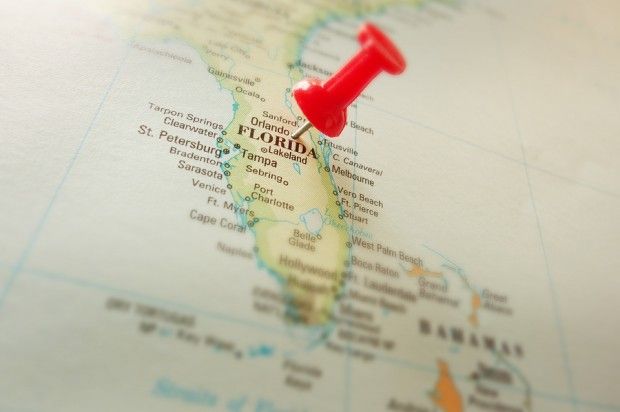The parent company of United Property & Casualty Co., already working to close up shop in Florida and other states after years of financial setbacks, reported a $173 million net loss for the third quarter of this year.
The publicly traded, Florida-based United Insurance Holdings Corp. also said its combined ratio was 165 for Q3.
The disappointing numbers were not unexpected from United P&C, which announced in August that it would non-renew personal lines in Florida and other states and had placed itself in an orderly runoff. That came after a buyer for the troubled insurer could not be found.
The latest quarterly report and an earnings call last week offered new information about how red the ink has been at what was once one of Florida’s larger personal-lines property carriers, and about UPC’s near-term future.

“During the third quarter we made the difficult decision to withdraw United Property & Casualty Insurance Co. from the personal lines business in the states of Florida, Louisiana and Texas.,” CEO Dan Peed said in a statement. “While Interboro Insurance Co. will continue to write personal lines business in the state of New York, the withdrawal allows us to focus our capacity on our commercial residential business written by American Coastal Insurance Co.”
Interboro and American Coastal are UPC companies.
“Our withdrawal plan will generally begin with non-renewals on January 1, 2023,” Peed added.
The company noted in a presentation to investors that it continues to have the largest market share of commercial residential property insurance in Florida, with some 5,500 policies and $488 million of premium in force. “American Coastal provides the state of Florida stable capacity that is desperately needed in the condominium market,” the company said.
For all lines, UPC had 147,520 policies in force at the end of September, down almost 26% from the end of 2021. UPC has received more than 23,000 claims from Hurricane Ian, which struck Florida Sept. 28-29. The Nov. 9 earnings call came one day before Hurricane Nicole hit Florida’s east coast, and did not report anticipated claims.
UPC was founded in 1999 and is headquartered in St. Petersburg, Florida. Late last year, the company suspended new homeowners business in Florida. This year, parent company undertook a major restructuring effort, consolidating four subsidiaries into two.
The moves came after heavy underwriting losses in recent years. Since 2018, the last year that UPC showed a profit, losses have totaled more than $258 million, according to financial statements. Q3 of this year was three times larger than the annual loss for 2021.
Last summer, the carrier took several steps to improve its bottom line. In June, UPC announced it had merged one subsidiary, Family Security Insurance, into UPC. Family Security held 1.84% of the Florida market at the end of 2021, the AM Best financial rating firm reported.
In July, the Demotech financial rating firm downgraded UPC’s financial strength rating. About that same time, UPC said it was exploring a range of options, including potential sale or merger with another insurer.
Peed said the downgrade by Demotech and by the KBRA bond-rating firm hurt the company’s financial standing.
“These impact(ed) our renewal retention levels and therefore, gross written premium and grow starting premium,” he said on the earnings call.
Peed also noted that the increase in reinsurance cost was a significant factor behind the financial losses. A transcript of the earnings call can be seen here. The company presentation is here.
UIHC shares closed last week at 32 cents. The stock has declined steadily in the last four years, from a high of $32 in 2018, according to Yahoo! Finance.
This article was originally published on Insurance Journal. Reporter Will Rabb is the Southeast Editor of Insurance Journal





















 AI Claim Assistant Now Taking Auto Damage Claims Calls at Travelers
AI Claim Assistant Now Taking Auto Damage Claims Calls at Travelers  Focus on Ski Guides After Deadly California Avalanche Could Lead to Criminal Charges, Civil Suits
Focus on Ski Guides After Deadly California Avalanche Could Lead to Criminal Charges, Civil Suits  Beyond Automation: The Emerging Role for Contextual AI in Insurance
Beyond Automation: The Emerging Role for Contextual AI in Insurance  State Farm Mutual to Pay $5B Dividend to Auto Insurance Customers
State Farm Mutual to Pay $5B Dividend to Auto Insurance Customers 